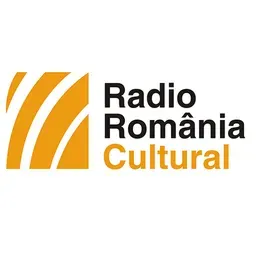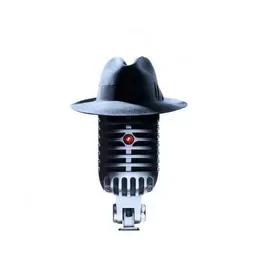

Lullaby Radio
A lullaby, or cradle song, is a soothing song or piece of music that is usually played for (or sung to) children (for adults see music and sleep). The purposes of lullabies vary.
Perhaps one of the most important uses of lullabies is as a sleep aid for infants. As a result, the music is often simple and repetitive. Lullabies can be found in many countries, and have existed since ancient times.
Studies conducted by Dr. Jeffery Perlman, chief of newborn medicine at NewYork–Presbyterian Hospital's Komansky Center for Children's Health, find that gentle music therapy not only slows down the heart rate of prematurely delivered infants but also helps them feed and sleep better. This helps them gain weight and speeds their recovery. A study published in May 2013 in the Journal of the American Academy of Pediatrics under the aegis of the Beth Israel Medical Center in New York City found that the type of music matters. Therapeutically designed "live" music – and lullabies sung in person – can influence cardiac and respiratory function. Another study published in February 2011 in Arts in Psychotherapy by Jayne M. Standley of the National Institute for Infant and Child Medical Music Therapy at Florida State University suggests that babies who receive this kind of therapy leave the hospital sooner.
Additional research by Jayne M. Standley has demonstrated that the physiological responses of prematurely delivered infants undergoing intensive care can be regulated by listening to gentle lullabies through headphones. In addition to slowing heart and respiration rates, lullabies have been associated with increased oxygen saturation levels and the possible prevention of potentially life-threatening episodes of apnea and bradycardia.[22] Gentle music can also provide stimulation for premature infants to behave in ways that boost their development and keep them alive. Lullabies can serve as a low-risk source of stimulation and reinforcement for increasing nipple sucking (feeding) rates, providing infants with the nutrition they require for growth and development. Lullabies are thus associated with encouraging the rapid development of the neurological system and with a shorter length of hospitalization.
More recent research has shown that lullabies sung live can have beneficial effects on physiological functioning and development in premature infants. The live element of a slow, repetitive entrained rhythm can regulate sucking behavior. Infants have a natural tendency to entrain to the sounds that surround them. Beat perception begins during fetal development in the womb and infants are born with an innate musical preference. The element of live breathing sounds can regulate infant heart rate, quiet-alert states, and sleep. Live lullabies can also enhance parent-child bonding, thus decreasing parental stress associated with the intensive care. In short, live lullabies sung by music therapists induce relaxation, rest, comfort, and optimal growth and development.
Source - Wikipedia
Perhaps one of the most important uses of lullabies is as a sleep aid for infants. As a result, the music is often simple and repetitive. Lullabies can be found in many countries, and have existed since ancient times.
Studies conducted by Dr. Jeffery Perlman, chief of newborn medicine at NewYork–Presbyterian Hospital's Komansky Center for Children's Health, find that gentle music therapy not only slows down the heart rate of prematurely delivered infants but also helps them feed and sleep better. This helps them gain weight and speeds their recovery. A study published in May 2013 in the Journal of the American Academy of Pediatrics under the aegis of the Beth Israel Medical Center in New York City found that the type of music matters. Therapeutically designed "live" music – and lullabies sung in person – can influence cardiac and respiratory function. Another study published in February 2011 in Arts in Psychotherapy by Jayne M. Standley of the National Institute for Infant and Child Medical Music Therapy at Florida State University suggests that babies who receive this kind of therapy leave the hospital sooner.
Additional research by Jayne M. Standley has demonstrated that the physiological responses of prematurely delivered infants undergoing intensive care can be regulated by listening to gentle lullabies through headphones. In addition to slowing heart and respiration rates, lullabies have been associated with increased oxygen saturation levels and the possible prevention of potentially life-threatening episodes of apnea and bradycardia.[22] Gentle music can also provide stimulation for premature infants to behave in ways that boost their development and keep them alive. Lullabies can serve as a low-risk source of stimulation and reinforcement for increasing nipple sucking (feeding) rates, providing infants with the nutrition they require for growth and development. Lullabies are thus associated with encouraging the rapid development of the neurological system and with a shorter length of hospitalization.
More recent research has shown that lullabies sung live can have beneficial effects on physiological functioning and development in premature infants. The live element of a slow, repetitive entrained rhythm can regulate sucking behavior. Infants have a natural tendency to entrain to the sounds that surround them. Beat perception begins during fetal development in the womb and infants are born with an innate musical preference. The element of live breathing sounds can regulate infant heart rate, quiet-alert states, and sleep. Live lullabies can also enhance parent-child bonding, thus decreasing parental stress associated with the intensive care. In short, live lullabies sung by music therapists induce relaxation, rest, comfort, and optimal growth and development.
Source - Wikipedia











